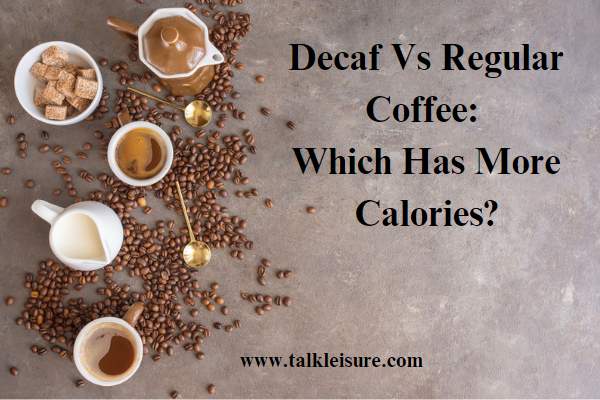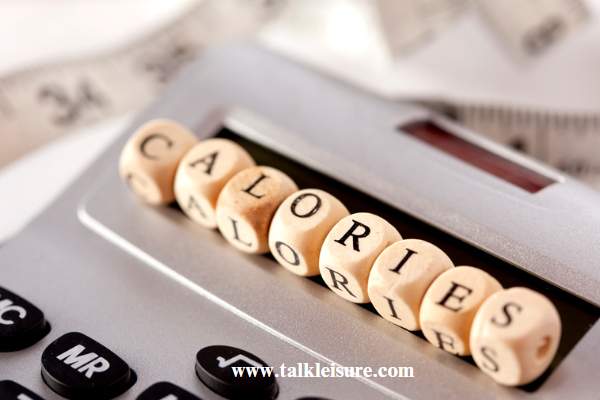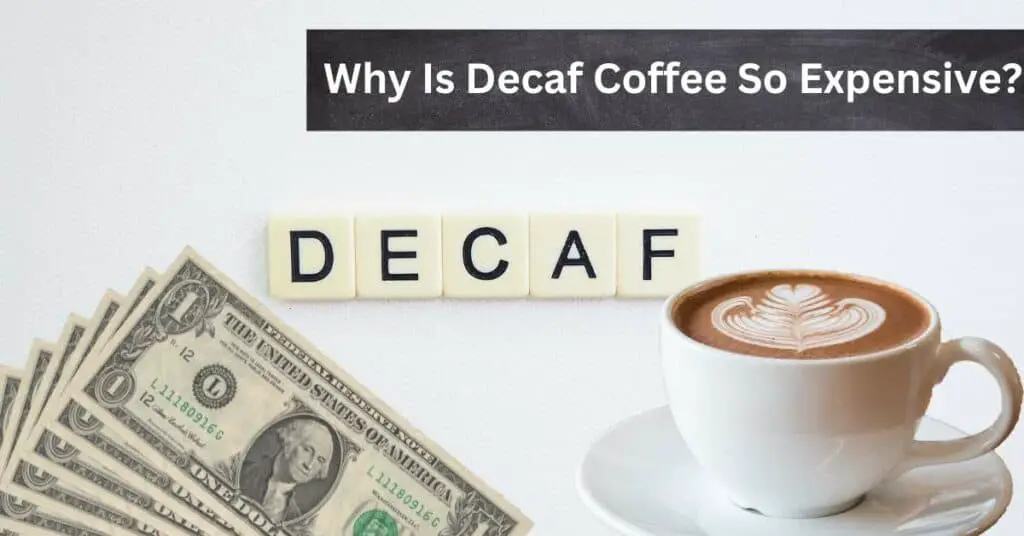Millions of people drink coffee every day, making it one of the most consumed beverages in the world.
While regular coffee is undoubtedly delicious, many people opt for decaf coffee for health reasons or to cut down on their caffeine consumption.
However, the most common question is whether decaf coffee contains calories.
Yes, decaf coffee normally has fewer calories than regular coffee.
This blog post will address this concern and give you all the details you require to make decisions about your use of decaf coffee.
So, if you’re curious to know whether your beloved decaf coffee can impact your calorie count, keep reading!
What Is Decaf Coffee?
Decaffeinated coffee, sometimes known as “decaf,” is essentially regular coffee that has had caffeine removed.
The process of decaffeination does not remove any of the calories from the coffee beans, so decaf coffee generally has the same amount of calories as regular coffee.
However, on its own, black coffee – whether regular or decaf – is almost zero calories, with up to 5 calories realistically.
For coffee drinkers who wish to experience the flavor and aroma of coffee without the stimulating effects of caffeine, decaffeinated coffee is a fantastic option.
Although decaf coffee lacks caffeine, it still has certain nutritional advantages, including 2.4% of the daily intake of magnesium, 4.8% of the daily recommended amount of potassium, and 2.5% of niacin, or vitamin B3.
Decaf Vs Regular Coffee: Which Has More Calories?

Decaf coffee normally has fewer calories than regular coffee.
This is because natural oils contained in coffee beans typically contribute extra calories to normal coffee.
However, on their own, regular and decaf coffee have up to 5 calories, which is really quite little.
While regular coffee can have 1 to 5 calories per cup, decaf coffee has none in every 8-ounce serving.
Therefore, switching to decaf coffee instead of adding sugar or cream to your regular coffee can significantly reduce your calorie intake.
Decaf coffee is often a better choice for health and has fewer calories than normal coffee.
Nutritional Content Of Decaf Coffee: Breaking It Down
The nutritional content of decaf coffee is often a topic of interest for those looking to manage their calorie intake.
An 8-ounce serving of decaf coffee has almost no calories, as previously indicated.
But it’s crucial to take into account any additions to the coffee, like milk or sugar, as they can dramatically raise the calorie count.
Antioxidants, which are found in abundance in decaf coffee, have a number of health advantages, including the ability to lower inflammation and the risk of developing chronic diseases.
Additionally, decaf coffee has been demonstrated to help with weight control because it is a low-calorie substitute for sweet drinks.
When enjoying decaf coffee, it’s important to keep in mind any potential additives and opt for low-calorie options when possible.
How Decaf Coffee Can Help with Calorie Control?

Although decaf coffee has no calories, it is still a useful calorie-control supplement.
Decaf coffee is a great beverage option for people trying to manage their weight because studies have shown that it can enhance fat-burning and speed up metabolism.
Additionally, it’s known that decaf coffee contains antioxidants that can assist the body get rid of harmful free radicals.
The addition of excessive amounts of milk, sugar, or other additives to your decaf coffee might quickly result in the intake of extra calories.
By enjoying decaf coffee in its pure form and incorporating it into a healthy diet, it can definitely be a beneficial aid in weight management efforts.
What Are The Impact Of Adding Milk Or Sugar To Decaf Coffee?
Decaf coffee’s nutritional value and calorie count might change substantially if milk or sugar are added.
While decaffeinated coffee is calorie-free on its own, a serving can have up to 100 calories when milk and sugar are added.
Additionally, adding sugar might make coffee more acidic, which could cause digestive issues.
To enjoy the possible health benefits of decaf coffee and avoid extra calories, it’s crucial to pay attention to the portion sizes and substances added.
Calorie Comparison: Decaf Coffee Vs Other Beverages
Compared to other beverages, decaf coffee is a wonderful choice in terms of calories.
According to the USDA, an 8-ounce serving of decaf coffee contains 0 calories.
This makes decaf coffee an excellent choice for weight loss or maintenance because it can help improve calorie control.
Decaf coffee is a far better option than sugary beverages or even regular coffee with additional cream and sugar.
For example, a 12-ounce can of soda can have up to 150 calories, while a small latte can have up to 120 calories.
Additionally, it is a wise choice for a daily beverage due to its antioxidant content and health advantages.
Is Decaf Coffee A Healthy Choice?
Decaf coffee is a healthy choice for anyone who wants the benefits of coffee without the jitters or negative side effects of caffeine.
Like regular coffee, decaffeinated coffee is packed with antioxidants and offers a variety of health advantages without the negative effects of caffeine.
It is a fantastic choice for people attempting to limit their calorie intake because it contains no calories per 8-ounce drink.
Additionally, studies show that drinking decaf coffee may reduce your risk of developing type 2 diabetes and cancer.
This is because antioxidants are thought to assist the body fight against the disease.
What Are The Tips For Enjoying Decaf Coffee Without Extra Calories?

Decaf coffee might be an excellent choice for people who are limiting their calorie consumption.
What about the extras like milk and sugar.
There are a few suggestions to remember to enjoy decaf coffee without adding extra calories.
Start by substituting non-dairy milk like almond or oat for traditional cow’s milk.
These substitutes can give your coffee a distinctive flavor while being typically lower in calories.
In addition, think about substituting honey or stevia for sugar if you want to use a natural sweetener.
These alternatives provide a comparable sweetness without the extra calories.
Lastly, pay attention to serving size.
Choose a lower serving size and treat yourself to a cup of decaf coffee sometimes rather than every day.
Conclusion
In conclusion, decaf coffee is a fantastic choice for people trying to consume fewer calories.
It offers a guilt-free supply of caffeine that will not harm your diet with zero calories in each 8-ounce cup.
Decaffeinated coffee also has lots of health advantages and is packed with antioxidants.
It’s crucial to keep in mind that adding milk or sugar to your decaf coffee might boost its caloric content, so be careful how you make your beverage.
Decaf is definitely a healthy and delicious beverage option for coffee lovers who are also controlling their weight.
FAQs
01.Can You Gain Weight From Decaf Coffee?
Since decaf coffee contains so few calories, it does not cause weight gain.
Decaf coffee can actually aid in weight loss by lowering hunger pangs and regulating blood sugar levels.
However, excessive amounts of milk or sugar in decaf coffee can cause weight gain.
Decaf coffee can be a useful supplement to a good diet and exercise regimen
02.Does Decaf Coffee Raise Your Blood Sugar?
No. Although caffeinated coffee has been shown to acutely impair glucose metabolism and raise blood sugar levels, decaf coffee does not have the same effect.
Due to the elimination of caffeine during manufacture, decaf coffee has been demonstrated to have little to no effect on blood sugar levels.
Adding milk or sugar to decaf coffee may increase the calorie content and potentially impact blood sugar levels, but it still remains a better option compared to sugary or high-calorie alternatives.
Just be sure to consume it without added sugars and fats, and think about enhancing the flavor without adding calories by blending in antioxidant-rich ingredients like cinnamon or vanilla.
03.Why Does Decaf Coffee Make Me Jittery?
Due to the fact that decaffeinated coffee can still contain traces of caffeine, some individuals may experience jitteriness after consuming it.
Even though the majority of decaf coffee contains less than 5mg of caffeine per cup, some people may react differently to caffeine than others.
Additionally, if someone consumes a large quantity of decaf coffee in a short amount of time, they may feel jittery due to the cumulative effect of the small amounts of caffeine.
Best Wishes!












